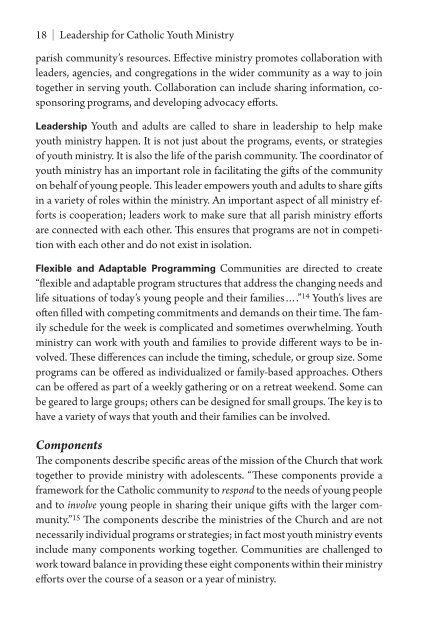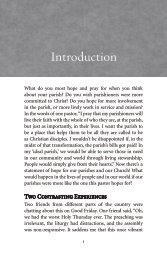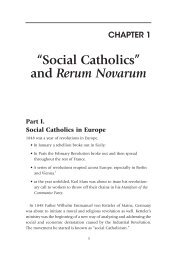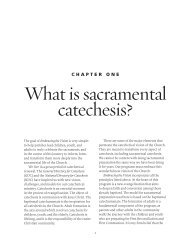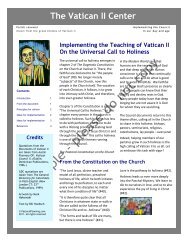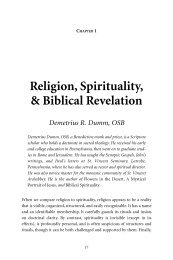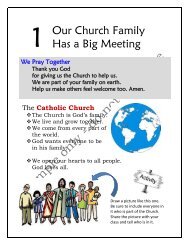Foundations for Youth Ministry - Pastoral Planning
Foundations for Youth Ministry - Pastoral Planning
Foundations for Youth Ministry - Pastoral Planning
Create successful ePaper yourself
Turn your PDF publications into a flip-book with our unique Google optimized e-Paper software.
18 | Leadership <strong>for</strong> Catholic <strong>Youth</strong> <strong>Ministry</strong><br />
parish community’s resources. Effective ministry promotes collaboration with<br />
leaders, agencies, and congregations in the wider community as a way to join<br />
together in serving youth. Collaboration can include sharing in<strong>for</strong>mation, cosponsoring<br />
programs, and developing advocacy ef<strong>for</strong>ts.<br />
Leadership <strong>Youth</strong> and adults are called to share in leadership to help make<br />
youth ministry happen. It is not just about the programs, events, or strategies<br />
of youth ministry. It is also the life of the parish community. The coordinator of<br />
youth ministry has an important role in facilitating the gifts of the community<br />
on behalf of young people. This leader empowers youth and adults to share gifts<br />
in a variety of roles within the ministry. An important aspect of all ministry ef<strong>for</strong>ts<br />
is cooperation; leaders work to make sure that all parish ministry ef<strong>for</strong>ts<br />
are connected with each other. This ensures that programs are not in competition<br />
with each other and do not exist in isolation.<br />
Flexible and Adaptable Programming Communities are directed to create<br />
“flexible and adaptable program structures that address the changing needs and<br />
life situations of today’s young people and their families….” 14 <strong>Youth</strong>’s lives are<br />
often filled with competing commitments and demands on their time. The family<br />
schedule <strong>for</strong> the week is complicated and sometimes overwhelming. <strong>Youth</strong><br />
ministry can work with youth and families to provide different ways to be involved.<br />
These differences can include the timing, schedule, or group size. Some<br />
programs can be offered as individualized or family-based approaches. Others<br />
can be offered as part of a weekly gathering or on a retreat weekend. Some can<br />
be geared to large groups; others can be designed <strong>for</strong> small groups. The key is to<br />
have a variety of ways that youth and their families can be involved.<br />
Components<br />
The components describe specific areas of the mission of the Church that work<br />
together to provide ministry with adolescents. “These components provide a<br />
framework <strong>for</strong> the Catholic community to respond to the needs of young people<br />
and to involve young people in sharing their unique gifts with the larger community.”<br />
15 The components describe the ministries of the Church and are not<br />
necessarily individual programs or strategies; in fact most youth ministry events<br />
include many components working together. Communities are challenged to<br />
work toward balance in providing these eight components within their ministry<br />
ef<strong>for</strong>ts over the course of a season or a year of ministry.


